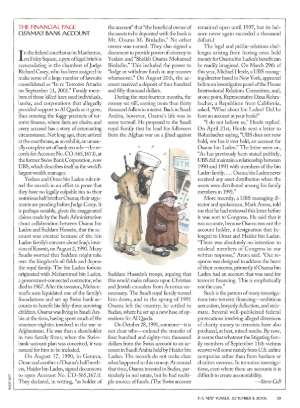The New Yorker, September 11, 2006 P. 32
There’s no knowing what place September 11th will occupy in our minds in another five or ten years, but the surprise just now is that so many of its persistent, recircling images are about age. How could it be, one still asks, that no Pentagon strategist or op-ed cogitator, at home with the kids on a weekend in the nineteen-nineties, ever noticed that tall, million-windowed downtown office buildings and a sky stuffed with tipping, X-winged planes are an endlessly inviting subject for a seven-year-old Crayola master, and that if the two themes accidentally overlapped somewhere on the page the kid needed only to add some orange, then purple and black and gray, to achieve a disaster? How is it that, in memory, those booted, hose-burdened firemen glancing back as they hurry toward their fatal tasks in the South Tower are always in their mid-twenties, while the terrified bystanders and survivors running toward us, minutes later, from out of a monstrous cloud wear the white makeup and ashen garments of a ghostly Kabuki ancestor? We already knew that history could age you and shake you up sometimes, but not this way: not like a pinscher with a rat.
Those of us in our eighties or late seventies can still remember when this was called a young country (it was said all the time in school) and, if we lived in New York, retain the vision of earlier iconic towers—the Empire State, the Chanin Building, the George Washington Bridge—going up, week by week, to prove the point. The Depression and Pearl Harbor and Guadalcanal and Dachau and Hiroshima aged and toughened us, to be sure, but perhaps not as much as the History Channel would have it. In the early sixties—in our forties, that is—we suddenly cheered up when some historian noticed that the late, Massachusetts-born, white-mustachioed Supreme Court Justice Oliver Wendell Holmes, Jr., who had served on the bench into the nineteen-thirties, had in his long lifetime shaken hands with John Quincy Adams and also our new incumbent, John F. Kennedy. How young we were, after all!
None of us, no one in the world, holds such a notion today. Our United States feels as old as Tyre. Also anxious and bloodied; also short of sleep. What’s a shock, as this special September comes along, is that 9/11 is only five years back. Boys and girls born that spring and summer are entering kindergarten this year, and before they leave elementary school will have learned and tucked away the date in about the same place as Antietam and the typewriter and the Great Plague—that is, if they’re paying any attention at all. We worry about them, as elders do, but what we know about them that they don’t is that they are the older generation. Even while this ancient, inescapable irony dawns, we think back more often to a deceased parent or to a friend gone too early, to a favorite teacher or poet or departed doubles partner—anyone who died before September 11th—and wish ourselves that free again, and that young.

